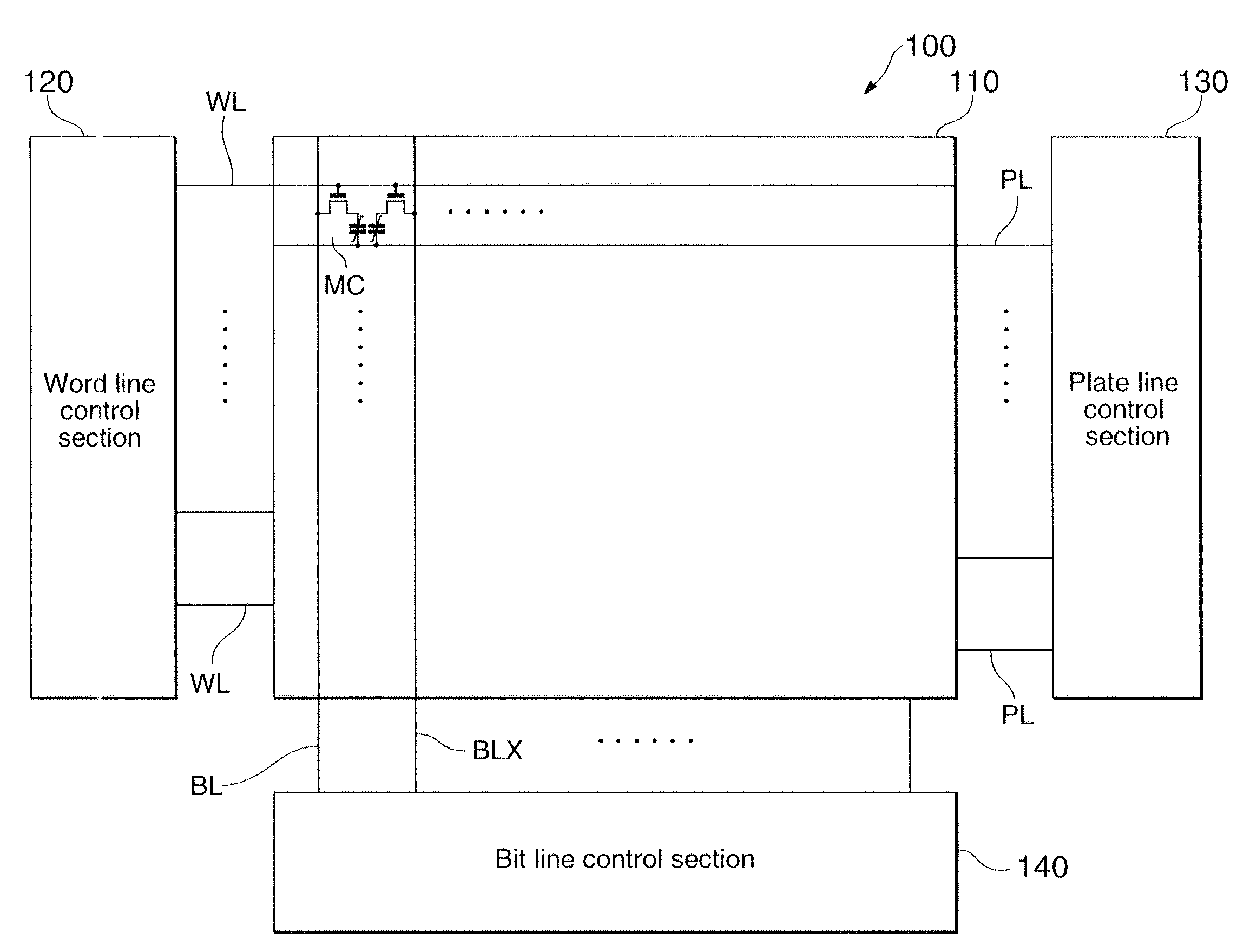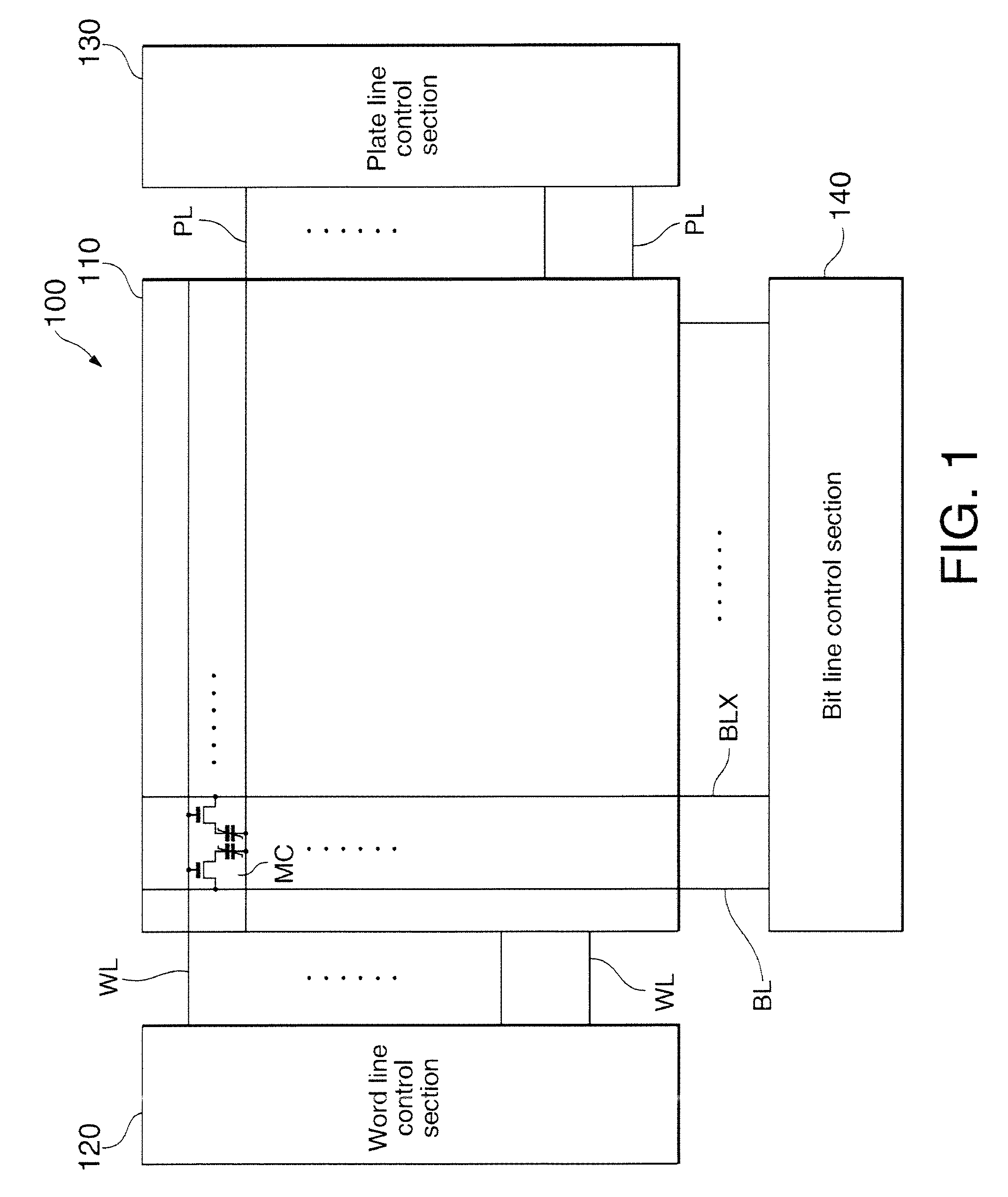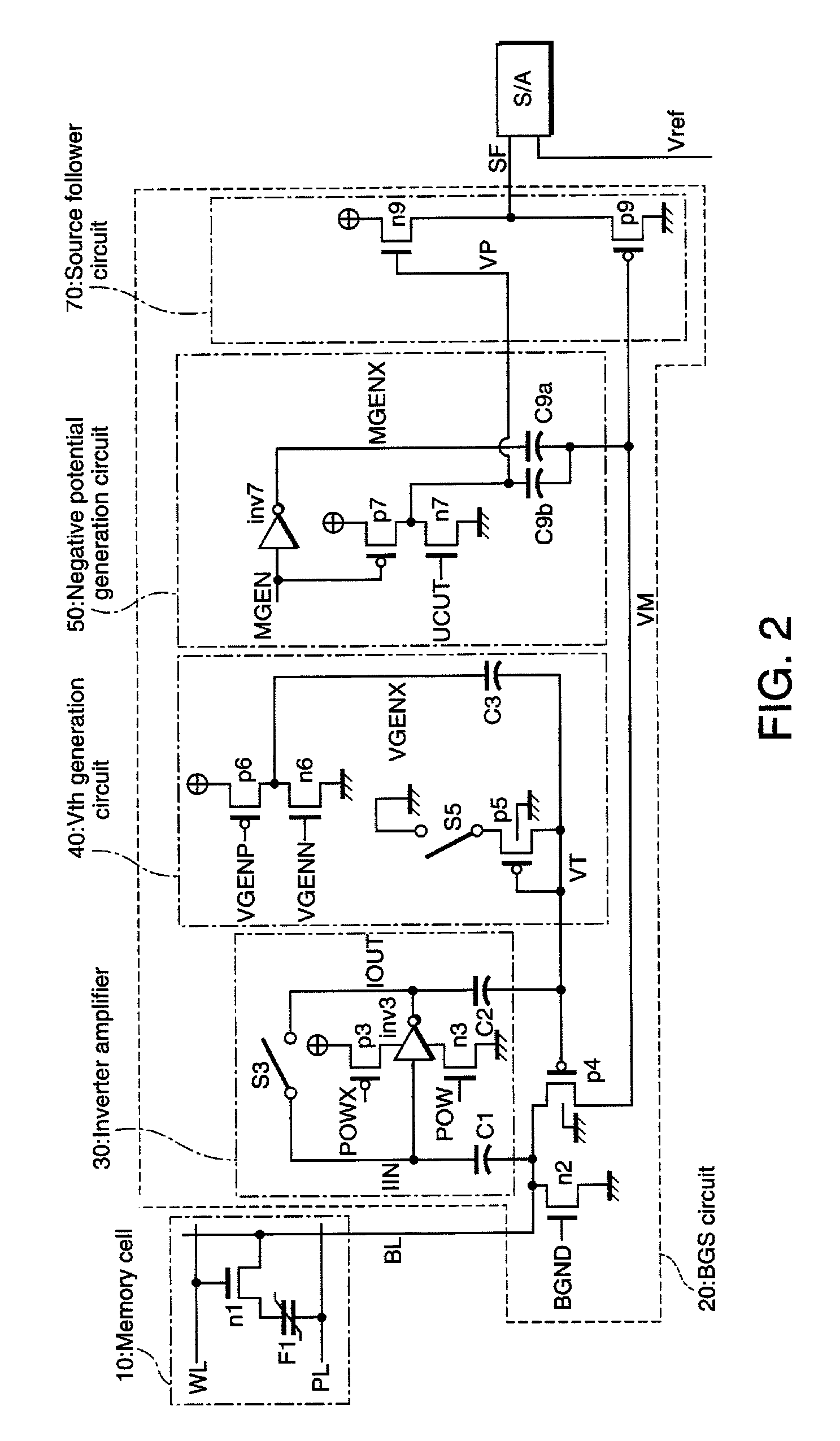Ferroelectric memory device, method for driving ferroelectric memory device, and electronic equipment
a ferroelectric memory device and readout technology, applied in the direction of information storage, static storage, digital storage, etc., can solve the problem of insufficient potential of ferroelectric capacitors, and achieve the effect of improving the readout margin
- Summary
- Abstract
- Description
- Claims
- Application Information
AI Technical Summary
Benefits of technology
Problems solved by technology
Method used
Image
Examples
embodiment 1
[0043]FIG. 1 is a block diagram of the structure of a ferroelectric memory device. As shown in the figure, a ferroelectric memory device 100 includes a memory cell array 110 and peripheral circuit sections (for example, 120, 130, 140, etc.). The memory cell array 110 is formed from a plurality of memory cells MC arranged in an array, wherein each of the memory cells MC is disposed at an intersection between a word line WL and a bit line (BL, BLX). In this embodiment, a 2T2C cell is shown as an example. In this case, each data set is stored by two transistors and two ferroelectric capacitors connected to a bit line BL and a bit line BLX, respectively. Also, the peripheral circuit may include a word line control section 120 and a plate line control section 130 which control voltages on a plurality of word lines WL and a plurality of plate lines PL. By the aforementioned control sections, data stored in the memory cells MC are readout onto the plurality of bit lines BL, or externally s...
embodiment 2
[0083]The embodiment 1 uses the source follower circuit 70, but the source follower circuit may be omitted.
[0084]FIG. 9 is a circuit diagram showing the structure of a readout circuit of the ferroelectric memory device in accordance with the present embodiment. It is noted that components in FIG. 9 identical with those of the embodiment 1 (shown in FIG. 2) shall be appended with the same reference numerals, and their detailed description shall be omitted.
[0085]As shown in FIG. 9, in accordance with the embodiment 2, a source follower circuit 70 is omitted, and the node VP is directly connected to a first input terminal of the sense amplifier S / A. In accordance with the present embodiment, the memory cell has a 2T2C cell structure; and among a bit line pair (BL and BLX), the bit line BLX is also connected to a similar BGS circuit 20. Accordingly, a node VPX, corresponding to the node VP, is connected to a second input terminal of the sense amplifier S / A, and these potentials are comp...
PUM
 Login to View More
Login to View More Abstract
Description
Claims
Application Information
 Login to View More
Login to View More - R&D
- Intellectual Property
- Life Sciences
- Materials
- Tech Scout
- Unparalleled Data Quality
- Higher Quality Content
- 60% Fewer Hallucinations
Browse by: Latest US Patents, China's latest patents, Technical Efficacy Thesaurus, Application Domain, Technology Topic, Popular Technical Reports.
© 2025 PatSnap. All rights reserved.Legal|Privacy policy|Modern Slavery Act Transparency Statement|Sitemap|About US| Contact US: help@patsnap.com



